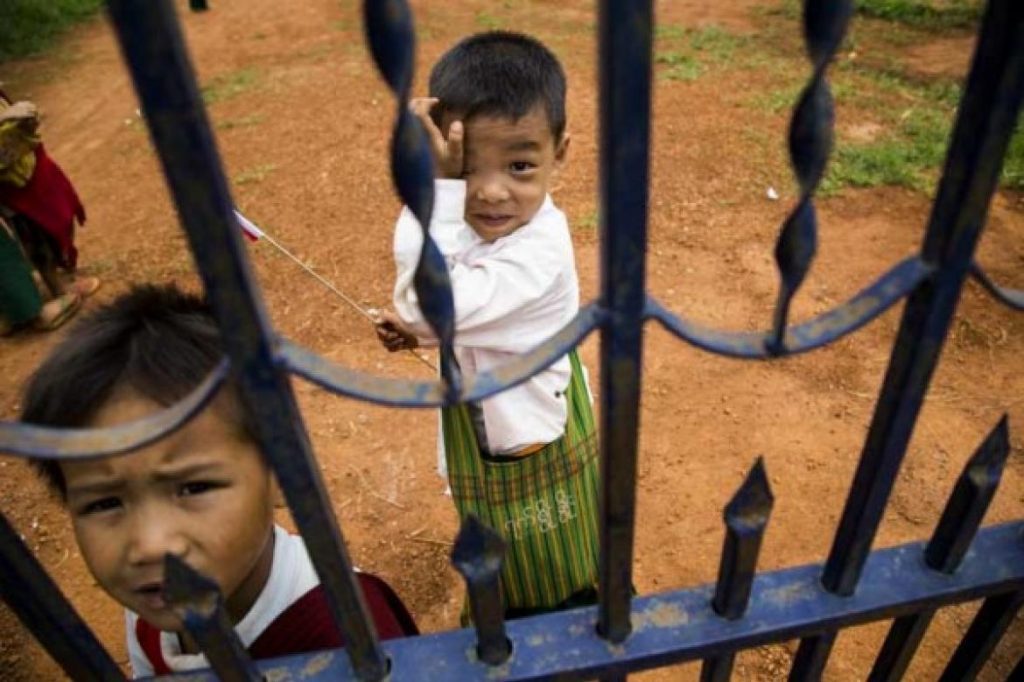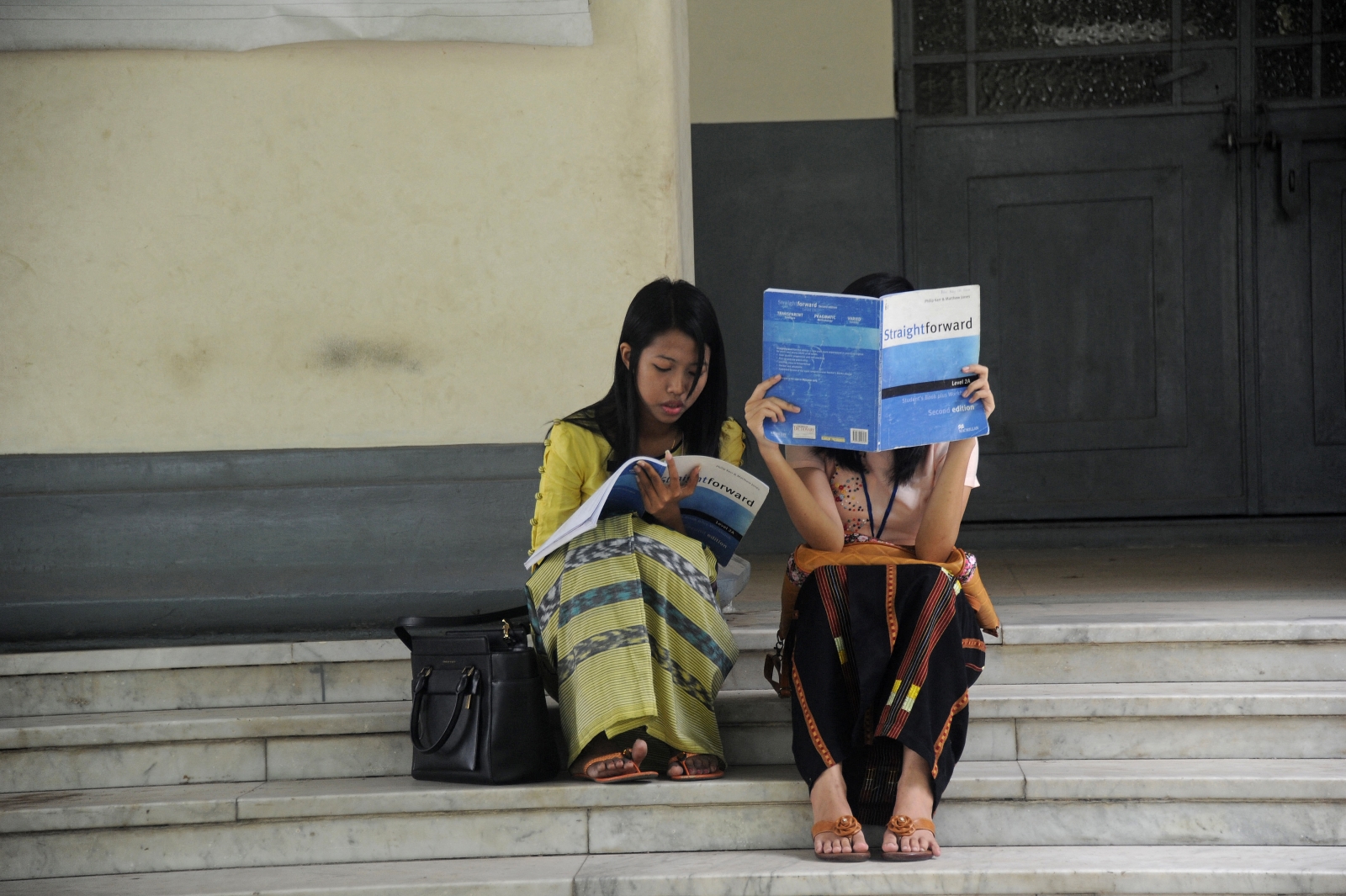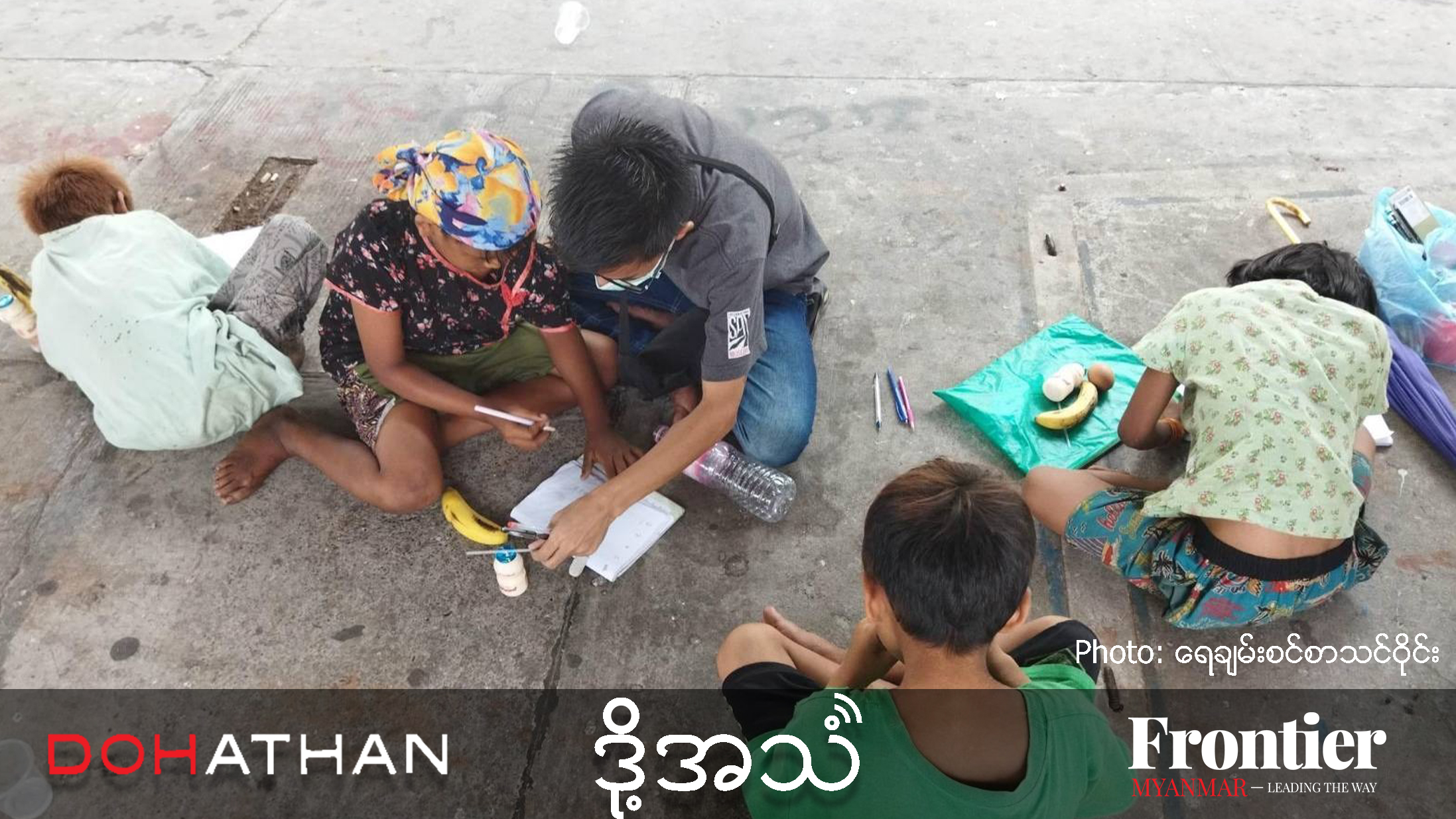Myanmar needs to replace an education system that wants children to answer questions but not ask them with one that encourages analytical thinking and intellectual stimulation.
I hated history. Copying chapter upon chapter from the prescribed textbook as homework drove me to protest and rebellion and I was summoned to the office of the headmistress with my parents. It was the only time I got into trouble at school. I grew up in a liberal family that believed in letting me chart my own course, in contrast to most other Myanmar parents who met teachers, coached their children as they did their homework and chose their academic and career paths. My mother flatly told the headmistress that the history teacher was wasting my time, a shock in a culture where teachers are revered. My history teacher never quite recovered.
Happily, I did. History became one of my great loves after years of passionate loathing. This was because of a turn of fate. After high school I wanted to enter medical school, but faced a long wait because universities were closed. My parents enrolled me at International School Yangon because they were concerned about a lack of intellectual stimulation. At ISY I met my love in a different guise. In a history textbook was a little box headlined ‘Critical Thinking’. In it were questions asking me to consider how a particular event in history could have been altered, the motivation of the persons involved, and how that moment affected the course of history. It was my turn to be shocked. Analyse history rather than just learn events and dates? Never!
Why am I writing this? Because my story illustrates a thread in the fabric of Myanmar as a nation and of the people who comprise its complex cloth. As a schoolchild during the socialist isolationalism of 1980s Burma, it did not cross my mind that school was a place where I might be inspired or taught how to think. My classmates and I memorised slabs of information to regurgitate, and neatly copied passages from text books to reproduce in sing-song study sessions. The sad consequence is that we also did not develop the ability to think, question and progress.
I gave up waiting for the medical school to open and left to pursue an education and career in the United States and Britain. My mind was constantly stimulated. I learnt to question established norms, engage in healthy social debate and in turn contribute my end of the social contract as a gainfully-employed, law-abiding, tax-paying, queue-respecting member of society. It’s two years since I returned to Myanmar and I fear that more than five decades of isolation, dictatorship and a broken education system has left my society crippled, without the critical mass of citizens who can contribute to the collective national thought process.
A democratic society with a voice for each citizen is an inspiration but when minds have been emptied, and stomachs too, for far too long, do we still have the ability to build a nation that will overcome our past woes and thrive as a modern developed state? We may have choice now but do we know how to analyse the consequences of our choices? When history repeats itself, how are we to craft the responses that move us forward when we have neither understood nor analysed our own history?
Support more independent journalism like this. Sign up to be a Frontier member.
Solutions won’t materialise overnight.
Completely rebuilding the national education system is clearly paramount and it is encouraging to see the efforts being made, even if politically flammable.
Luckily, Myanmar is opening up at a time when the world is interconnected and knowledge flows across borders with a click of a mouse or touch of a smartphone screen. Promoting the various knowledge bases available on the internet will allow the Myanmar people to open their eyes and fill their minds by tapping into the knowledge gifts that the rest of the world has bestowed on the global human society. One good idea taking root in an otherwise barren mind might yield fruits that will benefit us all. A collection of those ideas and minds will move our nation forward.







